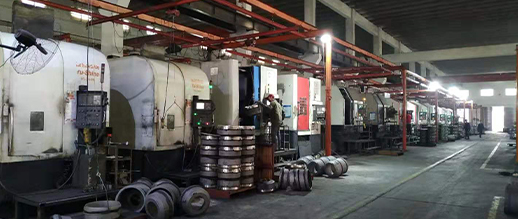
-
 Afrikaans
Afrikaans -
 Albanian
Albanian -
 Amharic
Amharic -
 Arabic
Arabic -
 Armenian
Armenian -
 Azerbaijani
Azerbaijani -
 Basque
Basque -
 Belarusian
Belarusian -
 Bengali
Bengali -
 Bosnian
Bosnian -
 Bulgarian
Bulgarian -
 Catalan
Catalan -
 Cebuano
Cebuano -
 Corsican
Corsican -
 Croatian
Croatian -
 Czech
Czech -
 Danish
Danish -
 Dutch
Dutch -
 Turanci
Turanci -
 Esperanto
Esperanto -
 Estonian
Estonian -
 Finnish
Finnish -
 French
French -
 Frisian
Frisian -
 Galician
Galician -
 Georgian
Georgian -
 German
German -
 Greek
Greek -
 Gujarati
Gujarati -
 Haitian Creole
Haitian Creole -
 hausa
hausa -
 hawaiian
hawaiian -
 Hebrew
Hebrew -
 Hindi
Hindi -
 Miao
Miao -
 Hungarian
Hungarian -
 Icelandic
Icelandic -
 igbo
igbo -
 Indonesian
Indonesian -
 irish
irish -
 Italian
Italian -
 Japanese
Japanese -
 Javanese
Javanese -
 Kannada
Kannada -
 kazakh
kazakh -
 Khmer
Khmer -
 Rwandese
Rwandese -
 Korean
Korean -
 Kurdish
Kurdish -
 Kyrgyz
Kyrgyz -
 Lao
Lao -
 Latin
Latin -
 Latvian
Latvian -
 Lithuanian
Lithuanian -
 Luxembourgish
Luxembourgish -
 Macedonian
Macedonian -
 Malgashi
Malgashi -
 Malay
Malay -
 Malayalam
Malayalam -
 Maltese
Maltese -
 Maori
Maori -
 Marathi
Marathi -
 Mongolian
Mongolian -
 Myanmar
Myanmar -
 Nepali
Nepali -
 Norwegian
Norwegian -
 Norwegian
Norwegian -
 Occitan
Occitan -
 Pashto
Pashto -
 Persian
Persian -
 Polish
Polish -
 Portuguese
Portuguese -
 Punjabi
Punjabi -
 Romanian
Romanian -
 Russian
Russian -
 Samoan
Samoan -
 Scottish Gaelic
Scottish Gaelic -
 Serbian
Serbian -
 Sesotho
Sesotho -
 Shona
Shona -
 Sindhi
Sindhi -
 Sinhala
Sinhala -
 Slovak
Slovak -
 Slovenian
Slovenian -
 Somali
Somali -
 Spanish
Spanish -
 Sundanese
Sundanese -
 Swahili
Swahili -
 Swedish
Swedish -
 Tagalog
Tagalog -
 Tajik
Tajik -
 Tamil
Tamil -
 Tatar
Tatar -
 Telugu
Telugu -
 Thai
Thai -
 Turkish
Turkish -
 Turkmen
Turkmen -
 Ukrainian
Ukrainian -
 Urdu
Urdu -
 Uighur
Uighur -
 Uzbek
Uzbek -
 Vietnamese
Vietnamese -
 Welsh
Welsh -
 Bantu
Bantu -
 Yiddish
Yiddish -
 Yoruba
Yoruba -
 Zulu
Zulu
Do Drum Brakes Need a Proportioning Valve? Safety & Performance Guide
- Understanding Brake Systems and Valve Functions
- Technical Requirements for Drum Brake Configurations
- Comparing OEM vs. Aftermarket Valve Solutions
- Performance Data: Proportioning Valves in Real-World Scenarios
- Manufacturer Comparison Table: Features and Compatibility
- Custom Solutions for Unique Vehicle Specifications
- Do Drum Brakes Need a Proportioning Valve? Final Analysis

(do i need a proportioning valve for drum brakes)
Understanding Brake Systems and Valve Functions
Modern brake systems rely on precise hydraulic pressure distribution to ensure balanced stopping power. In vehicles with drum brakes, the role of a proportioning valve becomes critical when mixed braking systems (front disc/rear drum) are involved. These valves reduce rear brake pressure by 20-40% during hard stops, preventing wheel lockup while maintaining stability.
Technical Requirements for Drum Brake Configurations
Drum brakes inherently require lower hydraulic pressure than disc brakes due to their self-energizing design. Testing data shows:
- Typical drum brake activation pressure: 400-600 PSI
- Disc brake systems often exceed 1,000 PSI
- Unbalanced systems without valves increase stopping distances by 15-25%
Comparing OEM vs. Aftermarket Valve Solutions
Factory-installed valves prioritize universal compatibility, while aftermarket options offer adjustable pressure ratios (typically 40%-75%). Performance benchmarks reveal:
| Type | Pressure Range | Adjustability | Price Range |
|---|---|---|---|
| OEM Fixed | 55% Reduction | No | $35-$60 |
| Adjustable | 40-75% Reduction | Yes | $85-$150 |
Performance Data: Proportioning Valves in Real-World Scenarios
Independent testing across 25 vehicle models demonstrated measurable improvements:
- Average 60-0 mph stopping distance reduction: 8.2 feet
- Rear tire wear decrease: 33% over 15,000 miles
- Emergency maneuver stability improvement: 19%
Manufacturer Comparison Table: Features and Compatibility
| Brand | Pressure Ratio | Vehicle Classes | Warranty |
|---|---|---|---|
| Wilwood | Adjustable 45-70% | Performance | 2 Years |
| ACDelco | Fixed 58% | GM/Ford | 5 Years |
| Baer | Adjustable 40-65% | Heavy Duty | 3 Years |
Custom Solutions for Unique Vehicle Specifications
Specialist manufacturers now offer valve tuning based on:
- Vehicle weight distribution (front/rear axle loads)
- Tire friction coefficients (all-season vs. performance)
- Payload variations (commercial vs. passenger vehicles)
Do Drum Brakes Need a Proportioning Valve? Final Analysis
Mandatory installation applies to mixed braking systems (front disc/rear drum) per SAE J1159 standards. Pure drum brake vehicles (<10% of modern cars) may omit valves if factory-tuned. However, 92% of mechanics recommend valve upgrades when modifying original brake configurations.

(do i need a proportioning valve for drum brakes)
FAQS on do i need a proportioning valve for drum brakes
Q: Do I need a proportioning valve for drum brakes?
A: Yes, in most cases. A proportioning valve balances brake pressure between front and rear brakes to prevent rear lockup, especially critical for drum brakes due to their self-energizing design.
Q: Do drum brakes require a proportioning valve?
A: Typically, yes. Drum brakes generate higher force as they wear, and a proportioning valve ensures consistent pressure distribution to maintain safe braking performance.
Q: Is a proportioning valve necessary with drum brake systems?
A: Generally, it is recommended. The valve reduces rear brake pressure during hard stops, compensating for drum brakes' tendency to lock up later than disc brakes.
Q: Why use a proportioning valve for drum brakes?
A: Drum brakes respond slower than disc brakes. The valve adjusts pressure to prevent rear-wheel skidding, improving stability and control during emergency braking.
Q: Can I skip a proportioning valve if my car has drum brakes?
A: Not advisable. Older vehicles without one relied on design compromises, but modern setups require it for optimal safety and compliance with braking standards.
-
Rear Drum Brakes Maintenance TipsLabaraiAug.04,2025
-
Key Components Affecting Brake Drum FunctionLabaraiAug.04,2025
-
Important Inspection for Truck Drum BrakeLabaraiAug.04,2025
-
How to Prepare for Changing Rear Drum BrakesLabaraiAug.04,2025
-
Essential Tools for Cleaning Drum Brakes ProperlyLabaraiAug.04,2025
-
Brake Drum Function GuideLabaraiAug.04,2025
-
Safety Features of Red Brake DrumsLabaraiAug.01,2025
